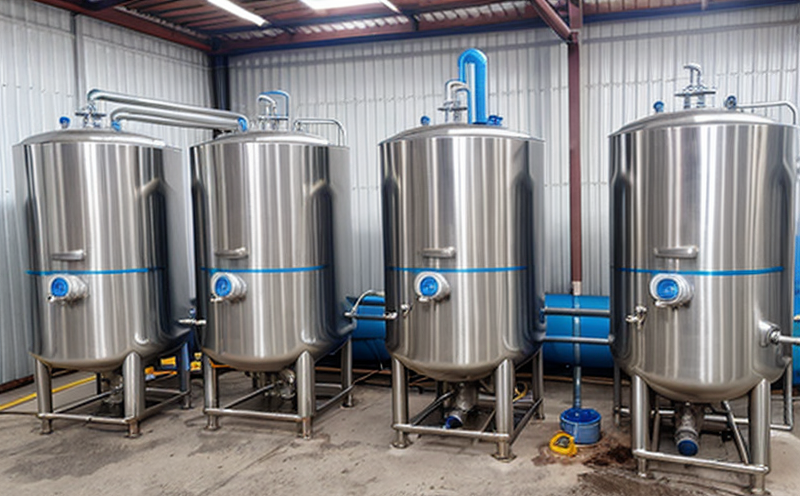ISO 7890-3 Nitrate Test in Boiler Water
The ISO 7890-3 standard specifies methods for determining nitrate nitrogen content in boiler water. This testing is crucial for ensuring the safety and efficiency of industrial boilers, which play a vital role in various sectors such as manufacturing, power generation, and petrochemicals.
The purpose behind this test is to identify any potential contamination that could lead to scaling or corrosion within the boiler system. Scaling can cause reduced heat transfer efficiency and increased fuel consumption, while corrosion can result in premature failure of critical components. By adhering to ISO 7890-3 standards, facilities ensure their boilers operate at optimal performance levels.
The testing procedure involves several steps: sampling, pretreatment if necessary, analysis using a spectrophotometer or flow injection analyzer, and finally, interpretation based on the method outlined in ISO 7890-3. The results provide actionable insights into the quality of boiler water, allowing for timely corrective actions to maintain system integrity.
In practice, this test is performed regularly as part of routine maintenance schedules. It helps operators monitor changes over time and address issues before they become significant problems. For instance, if nitrate levels are consistently high, it might indicate a leak in the cooling circuit or improper chemical treatment practices. Addressing these issues promptly can prevent costly repairs and downtime.
The importance of this test extends beyond just boiler maintenance; it also contributes to overall water quality management within industrial processes. By controlling nitrate concentrations, companies contribute towards sustainable operations by minimizing environmental impact. Additionally, compliance with industry best practices enhances reputation among stakeholders, including customers, regulators, and investors.
Why It Matters
The significance of the ISO 7890-3 nitrate test in boiler water cannot be overstated. Proper management of nitrate levels ensures safe operation while optimizing energy efficiency, extending equipment lifespan, and reducing maintenance costs.
- Enhanced Safety: Excessive nitrates can lead to explosive situations if not properly managed. Regular testing helps prevent such risks.
- Energy Efficiency: Efficient boiler operation reduces fuel consumption, leading to lower operational costs and a smaller carbon footprint.
- Lifespan Extension: Controlling nitrate levels slows down corrosion processes, preserving the integrity of metal parts inside boilers.
- Economic Benefits: Preventive measures through regular testing translate into substantial savings on repair bills and replacements.
Customer Impact and Satisfaction
Implementing ISO 7890-3 nitrate tests offers numerous benefits to customers, including improved product quality, enhanced reliability, and increased customer satisfaction. Here's how:
- Increased Product Quality: Ensuring that boiler water meets specified standards guarantees consistent output from industrial processes.
- Enhanced Reliability: By maintaining optimal conditions within boilers, disruptions due to failures become less frequent.
- Increased Customer Satisfaction: Reliable and efficient services translate directly into higher customer trust and loyalty.
Competitive Advantage and Market Impact
Adopting rigorous testing protocols like those prescribed by ISO standards provides significant competitive advantages in the market. These include:
- Regulatory Compliance: Demonstrating adherence to international standards reassures clients about the quality of services offered.
- Differentiation: Offering advanced testing capabilities differentiates a company from competitors, attracting more business opportunities.
- Sustainability Leadership: Emphasizing environmental responsibility through effective water management can position an organization as a leader in sustainability practices.





